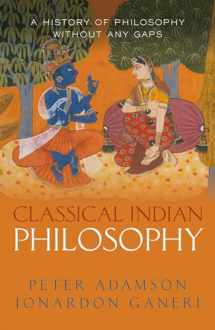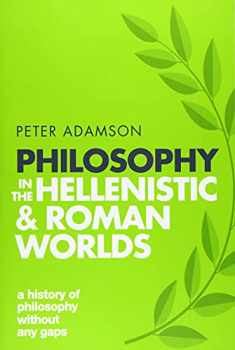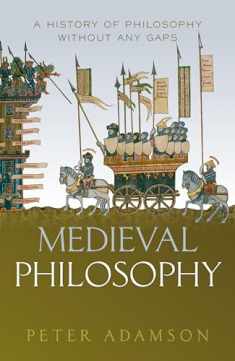
Classical Indian Philosophy: A history of philosophy without any gaps, Volume 5
Book details
Summary
Description
Peter Adamson and Jonardon Ganeri present a lively introduction to one of the world's richest intellectual traditions: the philosophy of classical India. They begin with the earliest extant literature, the Vedas, and the explanatory works that these inspired, known as Upani.sads. They also discuss other famous texts of classical Vedic culture, especially the Mah=abh=arata and its most notable section, the Bhagavad-G=ita, alongside the rise of Buddhism and Jainism. In this opening section, Adamson and Ganeri emphasize the way that philosophy was practiced as a form of life in search of liberation from suffering.
Next, the pair move on to the explosion of philosophical speculation devoted to foundational texts called 'sutras,' discussing such traditions as the logical and epistemological Nyd=aya school, the monism of Advaita Ved=anta, and the spiritual discipline of Yoga.
In the final section of the book, they chart further developments within Buddhism, highlighting Nag=arjuna's radical critique of 'non-dependent' concepts and the no-self philosophy of mind found in authors like Dign=aga, and within Jainism, focusing especially on its 'standpoint' epistemology. Unlike other introductions that cover the main schools and positions in classical Indian philosophy, Adamson and Ganeri's lively guide also pays attention to philosophical themes such as non-violence, political authority, and the status of women, while considering textual traditions typically left out of overviews of Indian thought, like the C=arv=aka school, Tantra, and aesthetic theory as well.
Adamson and Ganeri conclude by focusing on the much-debated question of whether Indian philosophy may have influenced ancient Greek philosophy and, from there, evaluate the impact that this area of philosophy had on later Western thought.


We would LOVE it if you could help us and other readers by reviewing the book
Book review





